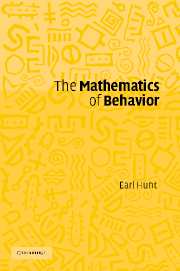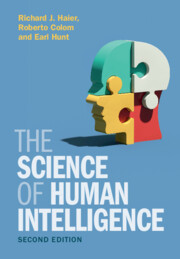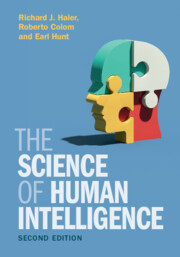The Mathematics of Behavior
Mathematical thinking provides a clear, crisp way of defining problems. Our whole technology is based on it. What is less appreciated is that mathematical thinking can also be applied to problems in the social and behavioral sciences. This book illustrates how mathematics can be used to understand human and animal behavior, using examples in psychology, sociology, economics, ecology, and even marriage counseling.
- Application of mathematics to fields where, in one student's words, 'I had no idea that mathematics could be used in this way'
- Liberal use of graphics as well as equations to illustrate points
- Examples ranging from economic issues to modeling interactions between partners in a marriage
Reviews & endorsements
'Traditionally, texts on mathematical modeling rarely select topics from social sciences, and this interesting book is a welcome addition to existing literature. It appeals to students and researchers in social and behavioral sciences, natural sciences, engineering, mathematics, as well as to anyone curious enough to patiently go through clearly explained and not very difficult mathematical passages in order to understand the chemistry of marital interactions, residential segregation and genocide, intelligence theories or approaches to learning. Believe me; your efforts will be generously rewarded!' Zentralblatt MATH
'A great book for anyone looking for an introduction to mathematical modelling within the social sciences.' Psychometrika
Product details
December 2006Hardback
9780521850124
356 pages
235 × 158 × 23 mm
0.6kg
14 tables
Available
Table of Contents
- 1. Introduction
- 2. Applying probability theory to problems in sociology and psychology
- 3. From physics to perception
- 4. When systems evolve over time
- 5. Non-Linear and chaotic systems
- 6. Defining rationality - personal and group decision making
- 7. How to evaluate evidence
- 8. Multidimensional scaling surveying the geography of the mind
- 9. The mathematical models behind psychological testing
- 10. How to know you asked a good question
- 11. The construction of complexity: how simple rules make the complex organizations
- 12. Connectionism: computation connects mind and brain
- 13. L'Envoi
- References
- Index.








